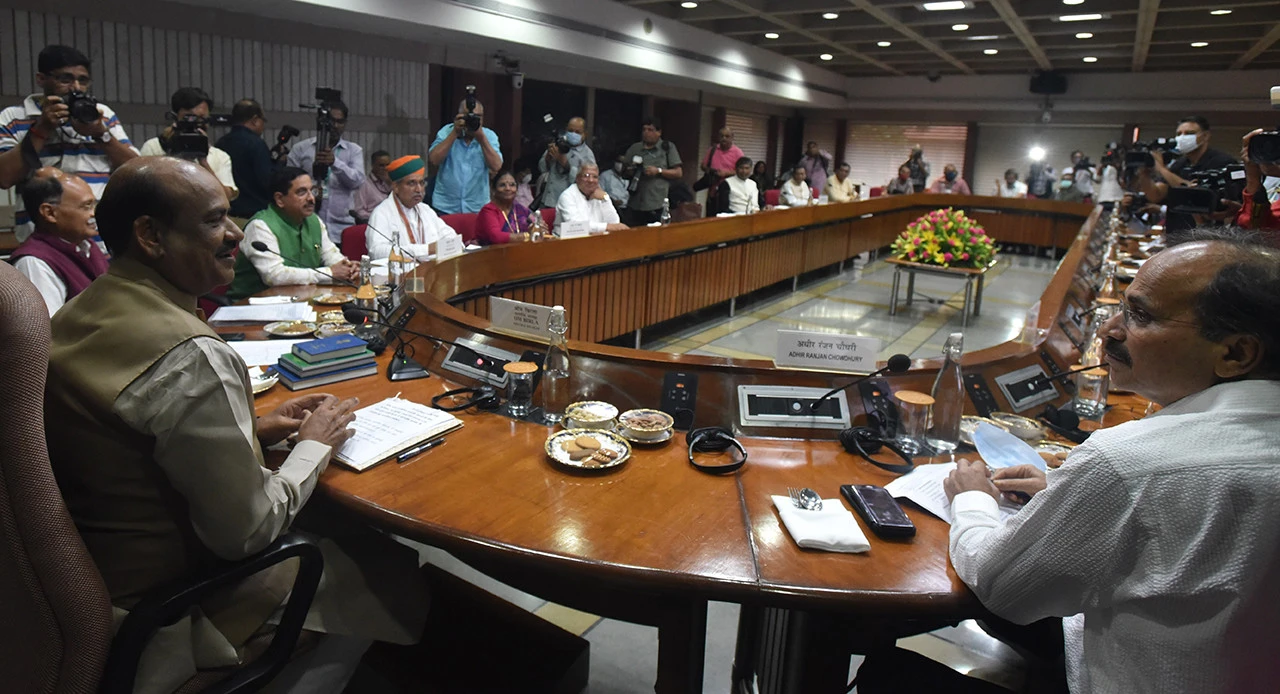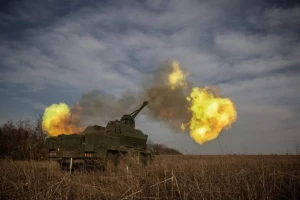
General election in India: Relations with Ukraine and why role of Asian player shouldn't be underestimated
Given the geopolitical challenges, India is now becoming an important player not only in the region but also in the world, and therefore cannot be ignored by Ukraine's foreign policy
Espreso has analyzed how the parliamentary elections in India will affect the further development of relations with Ukraine, as well as the common 'points of contact' the countries have.
What the article is about:
- Parliamentary elections in India and chances for changes
- Points of contact: Why are countries interested in each other?
- Development of bilateral relations: Economic cooperation
- Russia-Ukraine war and India's position
- India and President Zelenskyy's Peace Formula
- Breaking the ice in India-Ukraine relations
- Topics that could potentially become common for India and Ukraine
Parliamentary elections in India
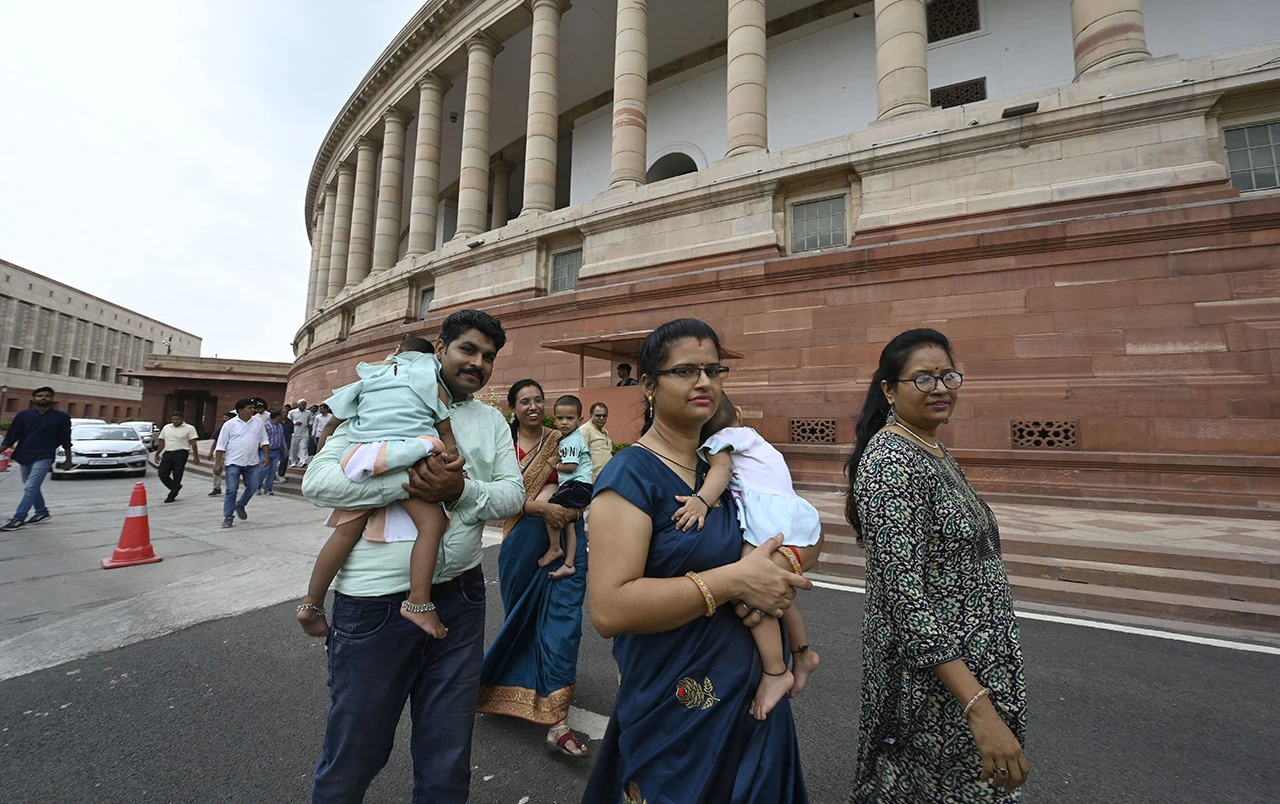
On April 19, India will hold parliamentary elections. Over 900 million citizens will elect 543 deputies for the next five years. Voting will take place in seven stages across the country and will end on June 1.
For Ukraine, it is important to analyze the course of this race, because India is now taking a wait-and-see attitude: it is building alliances with the West as opposed to China, while helping Russia fight economic isolation, sell energy, weapons, diamonds, and, in fact, circumvent sanctions.
Currently, the majority of seats in the parliament belong to the National Democratic Alliance (NDA), a center-right coalition of political parties led by current Prime Minister Narendra Modi and his People's Party of India (Bharatiya Janata Party, BJP). It is opposed by the Indian National Inclusive Development Alliance (INDIA), a center-left party led by the Indian National Congress (INC).
It is the competition between the BJP and the INC that is at the core of Indian political life, although the range of parties is wide. The main struggle will be between Prime Minister Modi and Indian National Congress leader Mallikarjun Kharge, who was elected last year to replace Rahul Gandhi.
Chances for changes
Modi's popularity in India remains unchanged, and his dominance in the party is growing. He is likely to be re-elected for a third term, especially since his plans are very ambitious. Last year, in a speech on the occasion of India's Independence Day, he outlined 5 principles that the state must adhere to in order to become one of the strongest in the world by 2047, the 100th anniversary of independence.
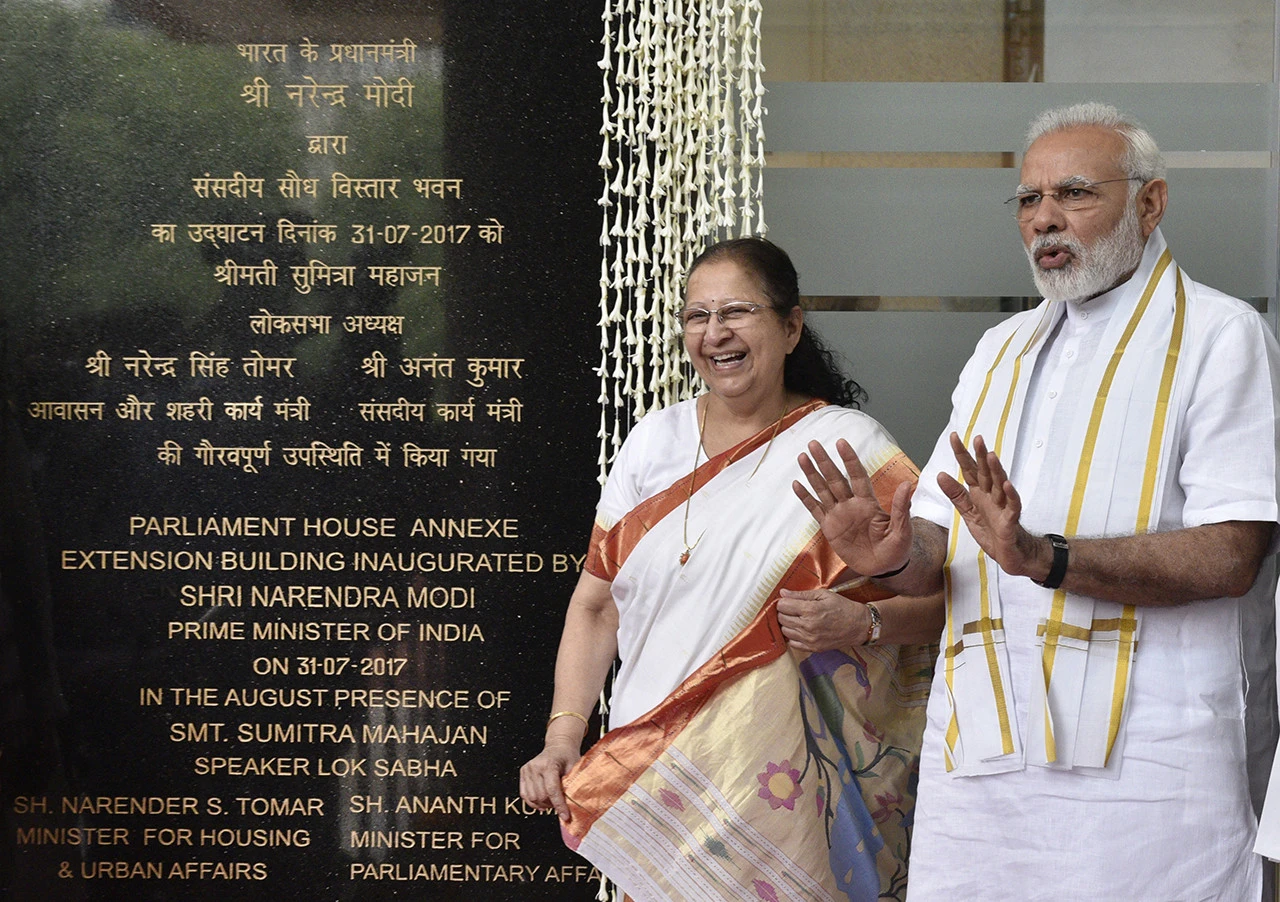
Since it is highly likely that Modi will remain in power, we should not expect significant changes in either Ukraine or Russia. Putin, for example, has expressed hope that when a new parliament is elected, India will remain an important partner of Russia. This is not only and not so much about New Delhi's neutrality in relation to the Russian-Ukrainian war, but also about further trade, economic, military and technical cooperation.
India manages to avoid Western sanctions and help Russia while maintaining friendly and allied relations with Western countries. The country has significantly increased its imports of Russian energy, purchasing not only oil but also coal, importing diamonds and working on joint arms projects. Indian officials regularly meet with their Russian counterparts: not only ministers, but also, for example, Ajit Doval, Modi's right-hand man and national security adviser.
At the same time, it is likely that the Indian establishment's attention to Ukraine will increase. In order to keep up with its main geopolitical rival, Beijing, New Delhi will try to play a more active role in the war and will be more vigorously engaged in the security of its important partner, Europe.
Points of contact: Why are countries interested in each other?
Ukraine benefits from relations with India in a number of ways. First, it can help expand trade ties and access new markets. In addition, cooperation can include technology exchange, especially in the areas of agriculture, information technology, and defense. Joint initiatives can also promote cultural exchange and cooperation in education and science. Moreover, according to estimates, Russia will probably have to remove unmodernized T-72s from storage bases by the end of 2024. Their restoration requires a large number of components, and India is a country that has more than 2,500 T-72 tanks of various modernizations in service and in reserve. Therefore, Ukraine should not allow the aggressor to gain access to these components, and ideally have access itself.
How can Ukraine interest India? First, long-term relations in the field of food security. India will continue to grow for several decades, and the need for food will be a major national security issue. Secondly, because of Ukraine's good relations with London, New Delhi may try to create a strategic partnership. Ideally, a partnership axis of London-Kyiv-New Delhi-Tokyo should be formalized. Thirdly, Russia's defeat hits China's geopolitical position. The more Moscow is on the verge of defeat, the more Beijing will be drawn into supporting Russia and make mistakes, pushing away "Western capital" that will reorient itself to India. And fourth, New Delhi's strategic relations with Kyiv are promising, as Ukraine will become a member of the EU by the end of this decade, and India will be glad to have an additional partner.
Development of bilateral relations: Economic cooperation
Trade and economic cooperation between Ukraine and India has played a key role in relations between the two countries since independence. Prior to the full-scale invasion, India was Ukraine's second largest export destination in Asia after China and the fifth largest export market for Ukrainian goods (4% of all Ukrainian exports went to India). The full-scale invasion has affected Ukraine's export opportunities, but in 2022, India remained among Ukraine's largest trading partners. Thus, the total trade turnover between the countries amounted to USD 2.58 billion. The main exports were fats and oils.
One of the key areas of economic cooperation between the two countries before the full-scale invasion, which has its roots in the Soviet past, is military-technical cooperation. For example, on September 7, 2021, Zorya-Mashproekt signed a contract for the supply of two gas turbine units for the Indian Navy worth more than $100 million. However, the unstable situation in Ukraine due to the Russian invasion has forced India to look for other ways to supply gas turbine units to its navy.
Before the full-scale invasion, the aviation industry was another important bridge in the cooperation between the two countries. Since 2009, a major project to modernize the Indian Navy's AN-32 aircraft worth $400 million has been underway. Under the contract, Ukraine was to upgrade 105 aircraft. Although the contract was delayed, in 2019 Ukraine and India agreed to resume the program. Less than a month before the full-scale invasion, Antonov CEO Serhiy Bychkov said in an interview that the company was negotiating with the Indian side to establish a joint venture to launch production of an AN-32-based aircraft in India.
One of the largest items of Indian exports to Ukraine is the pharmaceutical industry. In 2020, Ukraine imported products from Indian pharmaceutical companies worth more than USD 126 million. In 2022, India remained the second largest importer of medicines to Ukraine with imports of USD 173 million. The following major players of the Indian pharmaceutical market have been operating in Ukraine for a long time: Ranbaxy, Sun Group, and Dr. Reddy's Laboratories.
Ukrainian entrepreneurs are expanding areas for investment in India. In 2023, Ukrainian IT company Intellias announced the opening of a new development center in Pune. The company planned to hire about 100 IT specialists to work in the office. Also operating in the Indian market is New Products Group, one of the largest producers of soft drinks in Ukraine. They sell energy drinks in India.
Russia-Ukraine war and India's position
Since the annexation of Crimea and the beginning of the Russian-Ukrainian war in Donbas in 2014, India has officially tried to follow its policy of "neutrality." Before the full-scale invasion in 2022, official New Delhi did not comment on the Russian-Ukrainian war and the annexation of Crimea.
India's adherence to neutrality in the international arena has deep roots that date back to the Cold War and the active work of the Non-Aligned Movement. At that time, India refrained from criticizing the USSR, in particular, during its invasions of Hungary (1956), Czechoslovakia (1968), and Afghanistan (1979). So, refraining from harsh criticism of Moscow in the case of Russia's war against Ukraine in a way continues that policy. At the same time, the current Foreign Minister Subrahmanyam Jaishankar emphasizes that his policy is based on an approach he has labeled "plurilateralism." This approach can be explained as cooperation with seemingly unlikely partners for the common good.
India's position is not least influenced by its dependence on Russian weapons. Although India is reducing its imports of Russian weapons, it is difficult to get rid of this dependence in the short term. Indian experts often emphasize in their comments that India, "surrounded" by unfriendly neighbors, must be prepared to defend its sovereignty, and so far it has been dependent on Russian weapons.
However, even in this area, there are signs that India is gradually moving away from Russia. For example, in 2017, Russia was the main supplier of defense products to India. In that year, its share was 62% in India's defense procurement. In 2022, due to India's concerns about secondary sanctions from the United States, the share of the Russian Federation was reduced to 45%. Now the US is unblocking important defense cooperation with India, which aims to oust Moscow from India's defense industry. After that, India should become freer to pursue a policy of rapprochement with the United States and the West without looking back at Russia in the context of confrontation with China.
After the start of the full-scale invasion, Indian Prime Minister Narendra Modi repeatedly spoke out about the war in Ukraine. In particular, in an interview with The Wall Street Journal on the eve of his visit to the United States in June 2023, he said: "Some say we are neutral. But we are not neutral. We are on the side of peace".
While maintaining a neutral status, India did not provide military assistance to Ukraine, but did provide humanitarian aid: medicines, sleeping bags, blankets, and tents. Since the beginning of the full-scale invasion, New Delhi has already transferred fourteen batches of humanitarian aid (the last batch arrived in August 2023). Despite the rhetoric of Indian leaders, the increase in trade with Russia in 2022-23 (when it grew by more than 250% compared to previous years), which occurred in the first year of the full-scale invasion, makes Ukrainian politicians and government officials reassess India's "neutral" position. "When India buys Russian oil [at a discount], it must understand that this discount is paid for with Ukrainian blood. Every barrel of Russian oil that India receives contains a considerable amount of Ukrainian blood," commented Ukrainian Foreign Minister Dmytro Kuleba on the increase in purchases of Russian oil. In turn, Indian representatives argue that their decision to buy Russian oil is a "moral obligation to the Indians" because in a country with a GDP per capita of 2,000 dollars, people cannot afford it. In addition, India pays for this oil in rupees, which Russia cannot use except to accumulate or invest in India, which Russian officials are not too reluctant to do. They need the money for domestic consumption and, in particular, weapons production, and the rupees can only be used as investments in the Indian economy.
India and President Zelenskyy's Peace Formula
During a meeting on the sidelines of the Group of Seven Summit in Hiroshima, Japan, on May 20, 2023, President of Ukraine Volodymyr Zelenskyy invited Prime Minister Narendra Modi to join the Ukrainian Peace Formula that was presented during the G20 Summit in Indonesia in 2022. Prime Minister Modi then told President Zelenskyy that he was eager to help and that for him the war was a matter of humanity and human values, and that India and the Prime Minister personally would "do everything in his power" to resolve it.
It is worth noting that the vision of India as a possible mediator in the Russian-Ukrainian war has been gaining popularity, both by representatives of the Indian government and the opposition, since the beginning of the full-scale invasion. Most often, both politicians and analysts argue that India can do this, based on its experience of mediation during the Korean crisis of the 1950s.
At the same time, Indian officials have made statements of a different nature. For example, on May 8, 2023, Foreign Minister Subrahmanyam Jaishankar, when asked about the possibility of mediation, said that the situation was not conducive to mediation between Russia and Ukraine. Nevertheless, on June 23, 2023, at a joint press conference with President Joe Biden, Prime Minister Narendra Modi reiterated India's readiness to contribute to the restoration of peace. "We are fully prepared to contribute to the restoration of peace in any way we can. During India's chairmanship of the G-20, we emphasize the spirit of one earth, one family, one future.”
However, unlike India, the final text of the declaration adopted after the G20 meeting in New Delhi in September 2023 was received very critically in Ukraine. In particular, it was criticized by the Ukrainian Ministry of Foreign Affairs in terms of Russia's aggression against Ukraine. Thus, the declaration mentions the harmful effects of the war, but does not mention that Russia is the aggressor in this war. In addition, Ukraine's representatives openly stated that President Volodymyr Zelenskyy was ready to address the G-20 summit, as he did during Indonesia's presidency, but Indian representatives, including the Foreign Minister, officially emphasized that they were not waiting for Ukraine.
At the same time, India took part in all meetings at the level of foreign and security advisors in the format of President Zelenskyy's Peace Formula: in Copenhagen, Jeddah, and Malta. The Head of the Ukrainian President’s Office, Andriy Yermak, held regular telephone conversations with the National Security Advisor to the Prime Minister of the Republic of India, Ajit Kumar Doval, in February, June, August, October, and November 2023.
Breaking the ice in India-Ukraine relations
On March 28-29, 2024, Ukrainian Foreign Minister Dmytro Kuleba visited India for the first time in seven years. In New Delhi, Kuleba tried to engage India in the peace process and made efforts to develop economic cooperation with Ukraine. But the primary task was to restore cooperation between the two countries at a high political level and ensure its systemic nature. The two sides agreed that a high-ranking Indian official would participate in the Global Peace Summit in Switzerland, to explore the possibility of a return visit by the Indian Foreign Minister to Ukraine, and to organize visits by the presidents of both countries in the future. The two sides also agreed to resume the work of the intergovernmental commission on trade, economic, scientific, technical, industrial, and cultural cooperation, which was established in 1994 and ceased to function in 2018.
Among other signs of warming relations with Ukraine is the fact that India has proposed a humanitarian grant mechanism that will allow it to allocate one and a half million dollars for community development in Ukraine, such as rebuilding schools or hospitals. Although it only provides such grants to its neighboring countries.
Topics that could potentially become common for India and Ukraine
Reform of the United Nations
Both countries are interested in serious reform of the United Nations. Speaking at a meeting of the UN Security Council on September 20, 2023, President of Ukraine Volodymyr Zelenskyy voiced his version of reforming the organization. His proposal includes three important steps: the veto power, accountability to the nations of the world, and a system for preventing aggression through early response to certain actions. "Ukraine believes it is unfair that billions of people do not have permanent representation in the Security Council. The African Union should be here permanently. Asia deserves a broader permanent representation - it is not normal that nations like Japan, or India, or the Islamic world are still without a permanent representation on the Security Council," President Zelenskyy said. For India, the issue of reforming the UN Security Council has been a hot topic for a long time, and the positive experience of the G20 presidency has strengthened these ambitions. In particular, after the summit, Foreign Minister Jaishankar emphasized this priority: "What will happen if they [the UN - Ed.] do not reform? People will look for solutions from outside. And this is the message that the UN needs to understand." So the topic could potentially be common to both countries.
In addition, India may be interested in developing alternative organizations like the BRICS. Weakening Russia will weaken its position in the organization and make it clearly bipolar (India vs. China).
Postwar reconstruction and investment
Post-war reconstruction, which will require a significant amount of manpower and financial investment, can not only contribute to the growth of trade between the countries, but also strengthen interpersonal communication. During the Soviet era, Ukrainian engineers actively participated in the development of Indian industry. This experience remains in the memory of Indians to this day. Although often through the prism of perception of Russia as the successor to the USSR, this positive experience is recorded in favor of Russians only. New contacts can both strengthen interpersonal communication and bring back memories of the past. But first and foremost, they should be of interest to Indian business.
Natural resources
Ukraine is rich in natural resources, including lithium, which is critical for the green transition. According to various reports, Ukraine's lithium reserves are close to those of Portugal, the country with the largest deposits of this metal. At the same time, none of the lithium mines are currently operating in Ukraine, and their development requires investment. They could be of interest to Indian businesses, in particular. In addition, according to various sources, Ukraine has commercially significant deposits of 117 of the 120 most used industrial minerals.
Experience of warfare in the Black Sea
Given China's increasing aggression, any experience of active warfare could be of interest to India, and here the Ukrainian experience is of great value, especially the experience of warfare in the Black Sea. For example, from the beginning of the full-scale invasion, the Armed Forces of Ukraine actively hit maritime targets in the ports of Crimea. Another important aspect is the development and use of attack UAVs. The ingenuity in the use of military technology in confronting a much larger enemy is another important element of Ukraine's experience for India.
Education
Indian students started coming to study in Ukraine as early as the Soviet era. The main field of education that Indians study in Ukraine is medicine (over 90%). Today, despite the fact that most of the 18,000 pre-war students continue their studies in Ukrainian higher education institutions (mostly remotely and in three regions in western Ukraine full-time), new students do not enroll because of security risks. At the same time, for many Indian families, medical education in Ukraine was an opportunity to obtain higher education. Today, this issue is occasionally raised in the Indian press, but remains unresolved.
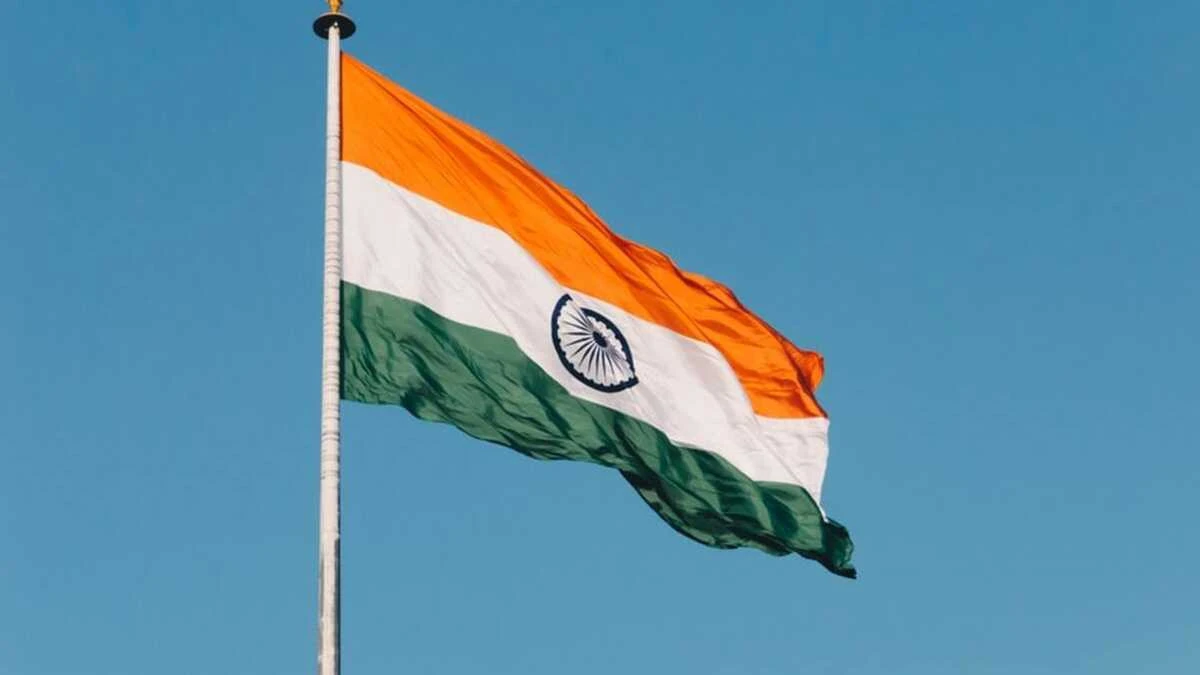
"The Indian elephant is reacting slowly but consistently. At the beginning of the full-scale war, India did not want to make very decisive statements about its position, but now it is reconsidering many things. It is disassociating itself from Russia," emphasized Mridula Ghosh, a researcher and lecturer at the Kyiv Mohyla Academy, a native of India. Ukraine, in turn, of course, understands how influential India is becoming in the international arena and defines this country as an "important partner" in the Asian region.
- News







